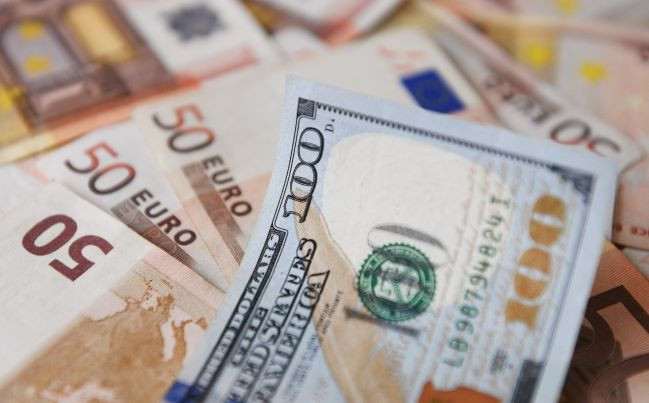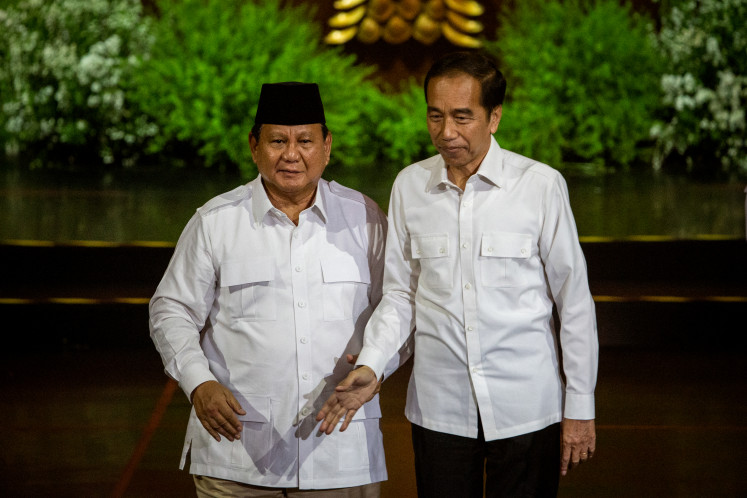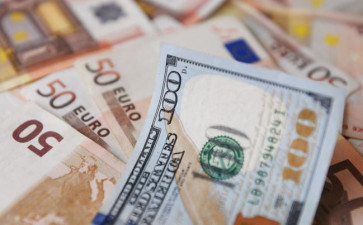Popular Reads
Top Results
Can't find what you're looking for?
View all search resultsPopular Reads
Top Results
Can't find what you're looking for?
View all search resultsHow Indonesia can learn from euro-US dollar parity
Indonesia still needs dollar liquidity to import some key commodities (such as petroleum, wheat and fertilizer) and to repay our external debt (with US$68.3 billion expected to come due over the next year).
Change text size
Gift Premium Articles
to Anyone
T
he euro, common currency for 19 European countries, hit parity (1:1 rate) against the United States dollar on July 13, a decline of 13 percent since the beginning of 2022. This day of reckoning had been foretold by analysts for a few months now, ever since the Russia-Ukraine war and subsequent sanctions led to a massive spike in inflation, especially for European countries that depend on energy imports from Russia. The US Federal Reserve’s aggressive rate hike in response to the inflation further exacerbated this trend, as it strengthened the US dollar against most other global currencies.
Why could the European Central Bank (ECB) not simply hike rates to fight inflation and match the Fed? There is a danger that in doing so, yields for southern European countries would increase much faster compared to northern European ones. In fact, this has already begun to happen, as the spread between the Italian and German 10-year bonds has widened to 213 basis points (bps) by July 15 versus 132 bps at the start of the year.
Essentially, this is the same “original sin” that has bedeviled the euro since its inception. In a currency union without fiscal union, a sharp widening of yield spreads among member nations threatens to undermine the whole project. If it is much more expensive to obtain euro liquidity in Italy compared to Germany, then Italy will be left with two options: Either accept a sharp reduction in its economic output, or exit the currency union altogether.
This feels like a déjà vu from the Eurozone debt crisis in the early 2010s. Back then, Greece had to undergo debt restructuring, while Italy, Spain and Portugal were set for a prolonged period of austerity until the then-ECB chief Mario Draghi famously brought down yield spreads by convincing the market that he would do “whatever it takes” to tighten it.
This time, however, ECB chief Christine Lagarde does not have nearly the same leeway due to the unfavorable global backdrop. Her ECB is expected to increase rates for the first time on July 21, and pair it with a so-called “antifragmentation tool” to prevent further widening of yield spreads.
This will likely include some kind of bond-market intervention, which, however, would be tested by the market and may require the ECB to expand its balance sheet at least temporarily, defeating the purpose of the rate hike.
At a glance, this saga seems rather removed from Indonesia’s concerns, except perhaps for the fact that Indonesia is benefiting from Europe’s switch to coal as Russia threatens to cut off gas supplies. However, there is a concerning parallel between the crack in the Eurozone and the fissure that is emerging in the global US dollar system.



















